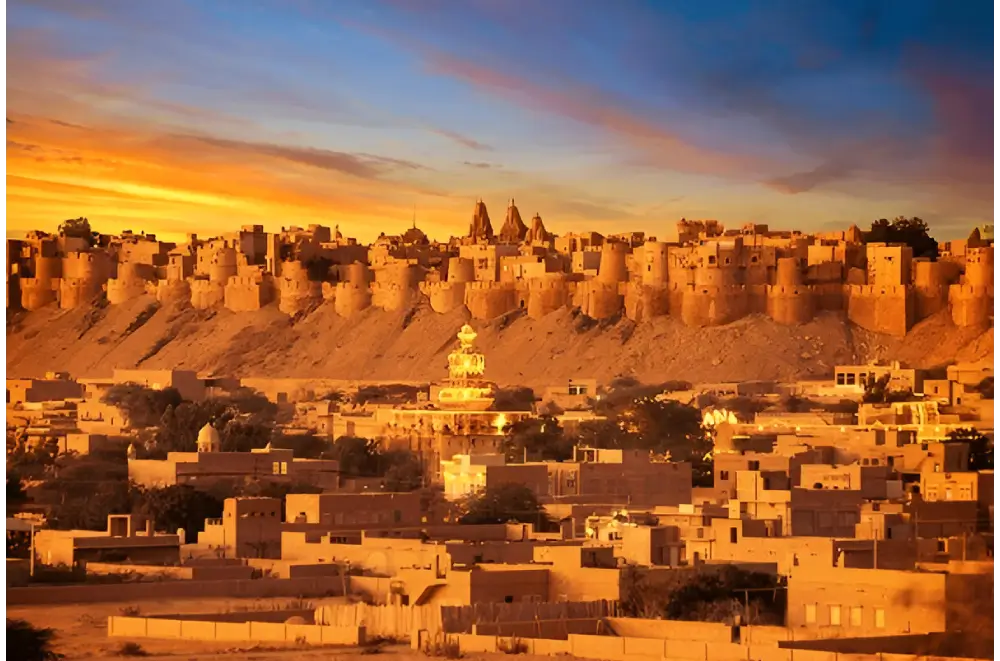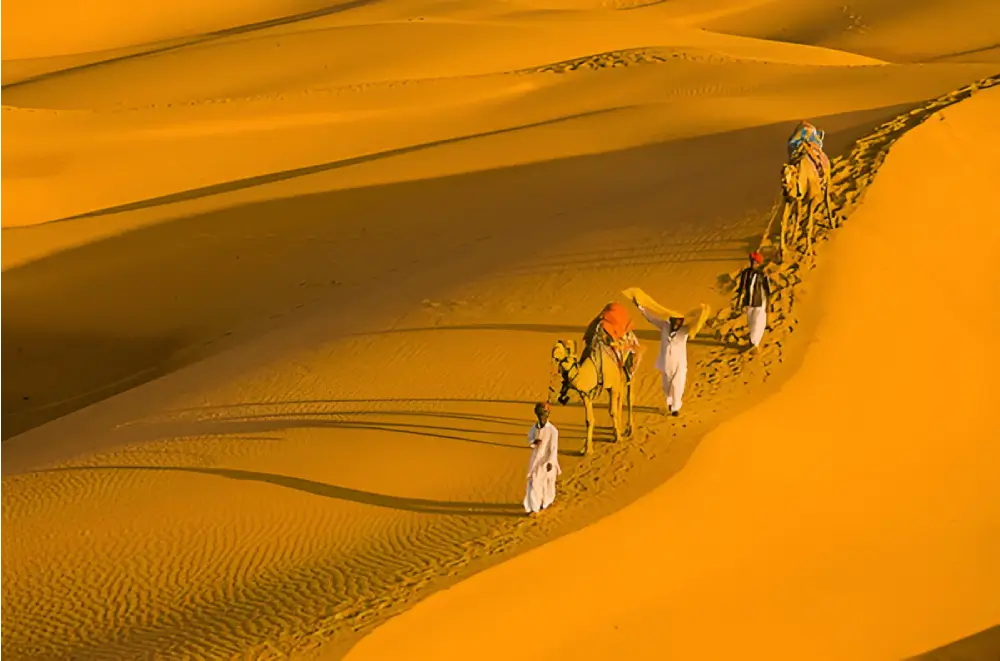👑 Top Tourist Places in Rajasthan – The Royal Land of Palaces & Deserts
Rajasthan Tourism: The Land of Royal Heritage and Colourful Culture
Rajasthan is one of India’s most fascinating states — a place where every fort tells a story, every desert dune hides ancient secrets, and every street bursts with colour. Known as the ‘Land of Kings’, Rajasthan is home to magnificent palaces, majestic forts, golden deserts, vibrant festivals, and a warm, welcoming people who take pride in their rich traditions.
Why Visit Rajasthan?
Travelling through Rajasthan feels like stepping into a living museum. From the pink-hued city of Jaipur to the golden sands of Jaisalmer, every city has its own charm. You can wander through grand palaces, take a camel safari in the desert, witness folk dances under starlit skies, or just enjoy a cup of masala chai in a local bazaar.
Whether you are a history lover, a culture enthusiast, an adventure seeker, or someone who wants to experience India’s royal hospitality, Rajasthan Tourism offers something for everyone.
Quick Rajasthan Travel Facts
| Details | Information |
|---|---|
| Location | Northwestern part of India |
| Best Time to Visit | October to March (pleasant weather for sightseeing) |
| Major Cities | Jaipur, Udaipur, Jodhpur, Jaisalmer, Bikaner, Pushkar |
| Popular Attractions | Amber Fort, City Palace Jaipur, Mehrangarh Fort, Lake Pichola, Sam Sand Dunes, Hawa Mahal |
| Local Cuisine | Dal Baati Churma, Laal Maas, Ghewar, Kachori |
| Accessibility | Well-connected by air, road, and rail from major cities in India |
Best Places to Visit in Rajasthan
Jaipur — The Pink City is famous for the Hawa Mahal, City Palace, Amber Fort, colourful bazaars, and vibrant local culture.
Udaipur — Often called the Venice of the East, Udaipur charms visitors with its lakes, palaces like City Palace and Lake Palace, and romantic boat rides on Lake Pichola.
Jodhpur — Known as the Blue City, Jodhpur’s Mehrangarh Fort offers stunning views, while the old city is full of blue houses and lively markets.
Jaisalmer — The Golden City with its sandstone fort, havelis, and the famous Sam Sand Dunes for camel safaris and desert camping.
Pushkar — A peaceful town famous for its holy Pushkar Lake, Brahma Temple, and the world-renowned Pushkar Camel Fair.
Rajasthan Climate Chart
Rajasthan has an extreme desert climate — hot summers, mild winters, and pleasant evenings from October to March.
| Month | Avg. High (°C) | Avg. Low (°C) |
|---|---|---|
| January | 22 | 8 |
| April | 37 | 21 |
| July | 35 | 27 |
| October | 33 | 20 |
| December | 24 | 10 |
Best Time to Visit: October to March, when days are sunny and nights are cool — perfect for sightseeing and desert activities.
Popular Things to Do in Rajasthan
Explore the grand forts and palaces of Jaipur, Jodhpur, Udaipur, and Jaisalmer.
Take a camel safari and watch the sunset in the Thar Desert.
Enjoy traditional Rajasthani folk music and dance at cultural shows.
Stay at a heritage haveli or palace hotel for a royal experience.
Shop for handicrafts, colourful textiles, jewellery, and leather goods in bustling local markets.
Savour authentic Rajasthani dishes like Dal Baati Churma, Gatte ki Sabzi, and Ker Sangri.
Why Book Your Rajasthan Tour with Mauzee Holiday
At Mauzee Holiday, we know that Rajasthan is not just about places — it’s about the royal stories, local traditions, and authentic experiences that make every trip special. We believe your holiday should feel personal and stress-free.
We customise every Rajasthan tour package according to what you want — from heritage stays to desert safaris and local experiences.
We give our 100% effort before confirming the package, making sure you get the best hotels, transport, and local guides.
On tour, our dedicated team is always available to ensure smooth service — so you can relax and enjoy your trip without worries.
With Mauzee Holiday, you travel like royalty but feel at home.




 05 Days
05 Days
 04 Nights
04 Nights





